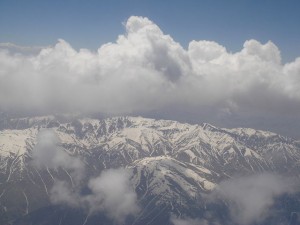Agreement on Hindu Kush transboundary landscape reached

Bhutan, India and Nepal have formally reached an agreement to include a new cross-boundary landscape covering parts of eastern Nepal, Sikkim and the northern parts of West Bengal in India and western Bhutan as Kangchenjunga landscape in the Hindu Kush Himalayan Region.
The cross-boundary landscape spans 16,000 square kilometers and it is one of the seven cross-boundary areas identified by the International Centre for Integrated Mountain Development (ICIMOD) in the Hindu Kush Himalayan Region to study the impact of climate change on the extended Himalayan region.
Officials of the three countries officially reached the agreement amid the second experts´ consultation for a new transboundary landscape initiative held in Thimphu, Bhutan on April 17 based on the concept and timeframe decided at the first experts´ consultation held in Sikkim two years ago.
The three-day consultation, which kicked off on April 16, will end Friday.
The consultation was organized by the Department of Forest and Park Services, Ministry of Agriculture and Forests, Royal Government of Bhutan and ICIMOD with support from German Federal Ministry for Economic Cooperation and Development (BMZ)/Deutsche Gesellschaft für Internationale Zusammenarbeit (GIZ) and the Austrian Development Agency (ADA).
More than 40 representatives of governmental and non-governmental organisations had participated in the consultation.
Speakers at the function pointed out that transboundary cooperation is imperative in the face of the growing human-wildlife conflict as well as increasing evidence that species, such as snow leopards, are expanding their habitat range across boundaries.
On April 16, the first day of the second consultation, Sherban Gyaltshen, Secretary of the Ministry of Agriculture and Forests, had unveiled a book titled ´An integrated assessment on effects of natural and human disturbance on a wetland ecosystem: A retrospective from Phobjikha Conservation Area, Bhutan.´ The book was jointly published by ICIMOD and Royal Society for Protection of Nature, Bhutan.
